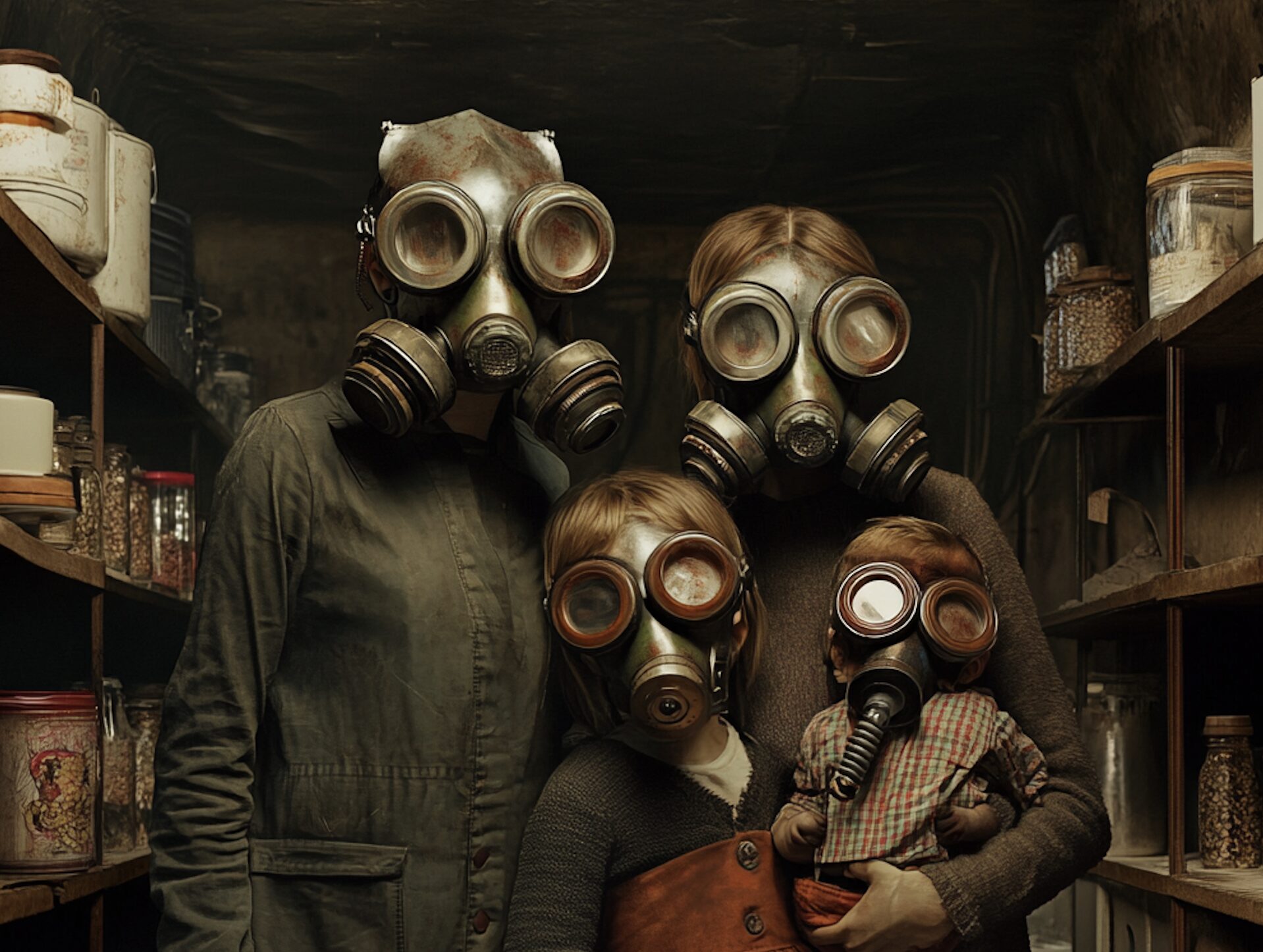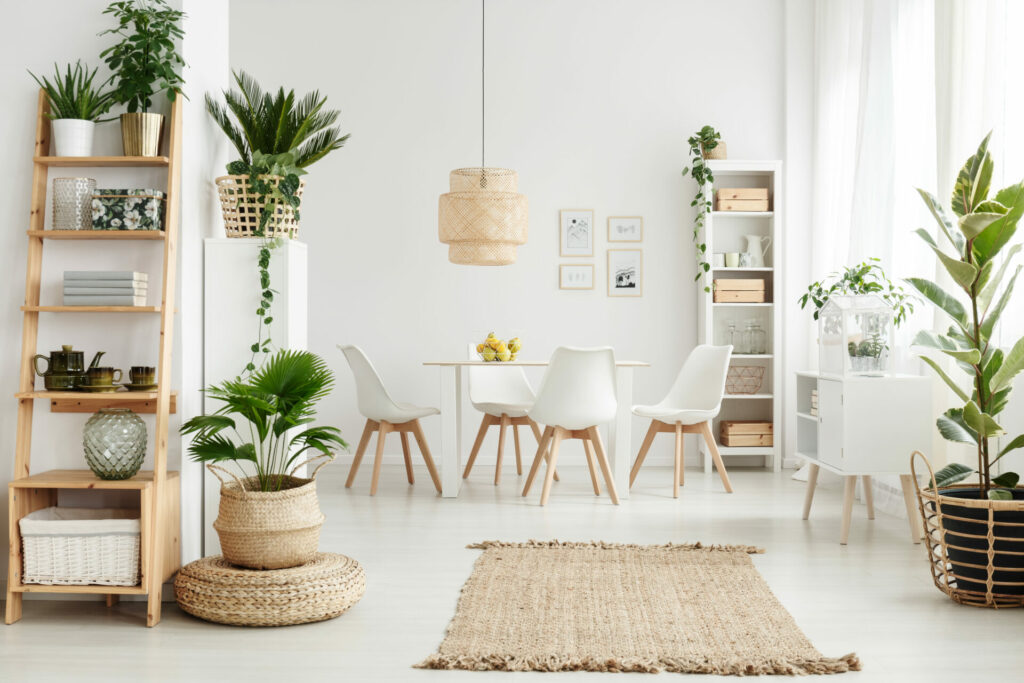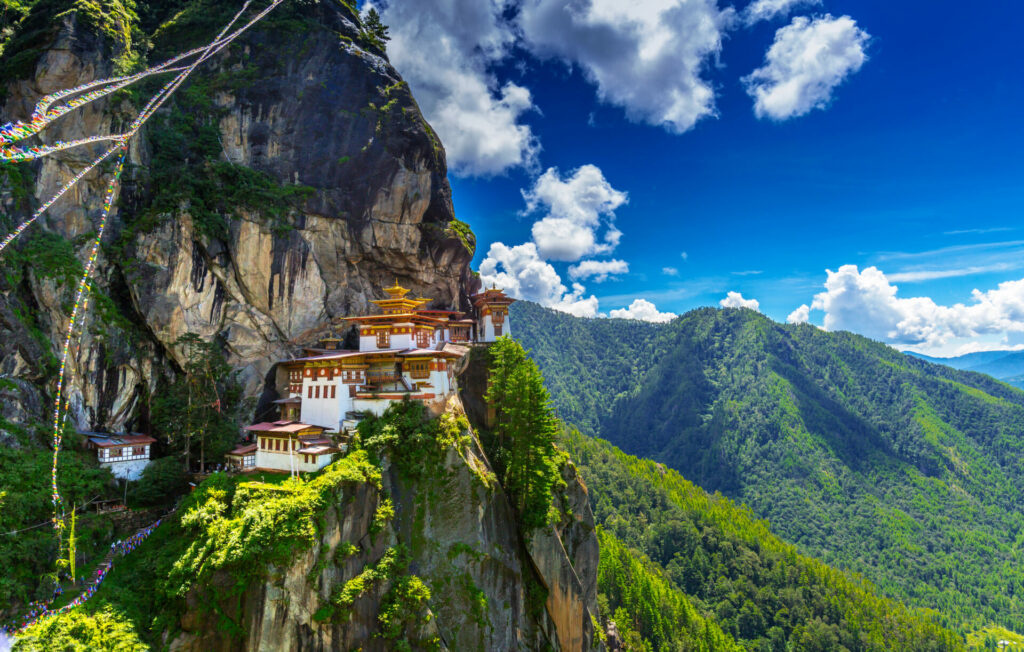Since the dawn of time – or actually the moment we discovered the means of preserving certain foods by methods such as salting and pickling – humans have been drawn to the potentially life-saving idea of hoarding supplies of essential items. Fast forward a few millennia and that instinct has evolved into a modern movement: the preppers. And today’s preppers aren’t just preparing for a bad day – they’re preparing for a very bad one.
Right now almost 20 million Americans, one in five Brits and a rising number globally, are cruising the aisles of supermarkets binge-buying buckets of $80 (AED 293) apocalypse pasta and other dinners with a 25-year-shelf life ready for a cataclysm.
Many are building bunkers, stockpiling at least a year’s worth of tinned and powdered goods along with seeds to grow their own food, and water filtration and purifier systems in case of another pandemic, nuclear detonation, civil war or AI taking over the planet.
And while 51 per cent of Americans are prepared for a disaster, according to a recent survey by the Federal Emergency Management Agency (Fema), plenty think bunkering down isn’t enough and have booked themselves a place at a survivalist retreat.
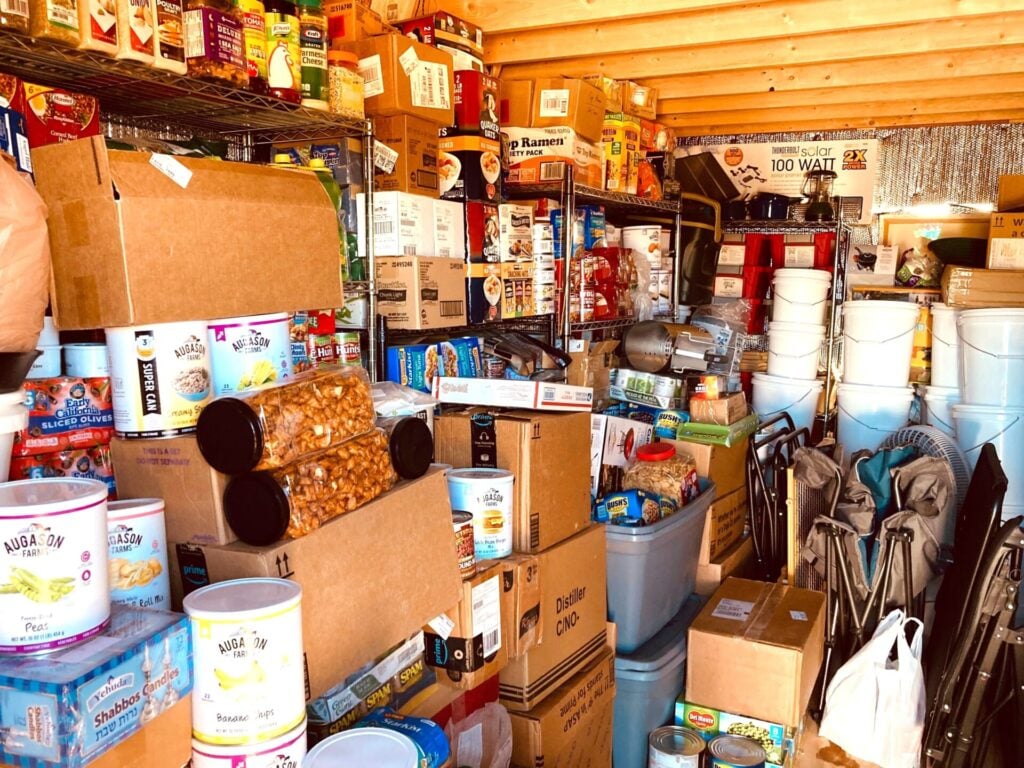
But it’s far from luxury. In rural Colorado, an outpost of Fortitude Ranch, a network of such retreats, the rooms are furnished with bare mattresses, sacks of rice, canned tuna, boxes of Pop Tarts, mountains of toilet paper, coffee, batteries, a PlayStation, Dan Brown novels, stacked furniture and boots designed to protect against poisonous snake bites.
Welcome to the world of prepping, a rapidly growing industry that is due to reach $2.46bn (AED 9.34 bn) in the US alone by 2030. It’s not just a security measure either – prepping is a lifestyle choice, with the purchases providing identity as much as it allays fears of ‘the event’.
Then came Y2K – the non-event of the millennium – and, more importantly, Covid. Suddenly, an idea that had started to lose momentum amongst all but new world-order fantasists was back on everyone’s radar
Prepping spikes are often inspired by war because anticipated or actual scarcity encourages the sensible and nervous alike to double up on stocks of things they may soon run out of.
The golden age of prepping was arguably the Cold War when millions of Americans thought there was a more than reasonable chance of a Soviet missile landing on their lawn.
Then came Y2K – the non-event of the millennium – and, more importantly, and recently, Covid. Suddenly, an idea that had started to lose momentum amongst all but new world-order fantasists was back on everyone’s radar.
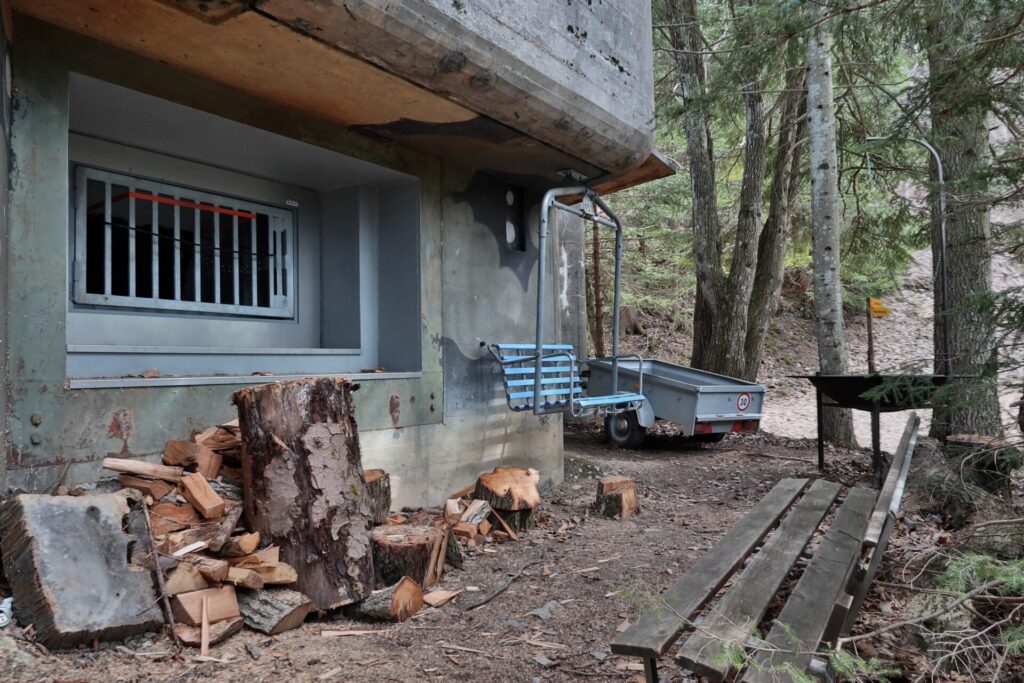
Global political and environmental tensions of the past few years – the Doomsday Clock is now set at just 89 seconds to midnight – have further heightened the sense that a disaster could be just around the corner. Even the clock’s operators, the Bulletin of the Atomic Scientists who monitor the combined risks of climate disaster, nuclear annihilation, biological threat and ‘disruptive’ technologies say we’ve never been closer to ‘global catastrophic destruction.’
Prepping, then, is not just for the paranoid.
Prepping Gets trendy
According to The Times newspaper in London, the kings of modern prepping are US citizens: ‘whole communities of off-grid disaster-ready preppers with guns and armour-plated “apocalypse vehicles”.’
But that belies the truth. Prepping has gone mainstream.
Kim Kardashian, Mark Zuckerberg, former PayPal CEO Peter Thiel and Bill Gates are all rumoured to have fancy underground (well-stocked) bunkers at their homes.

The Hollywood Reporter recently quoted Ron Hubbard of Texas-based Atlas Survival Shelters, who said: ‘It seems like the phone hasn’t stopped ringing. World War III seems like it’s coming.’
Hubbard is currently working on a $7.5m (AED 27, 545m) bunker for a client in Oklahoma.
In mid-2024, the UK’s then Deputy Prime Minister Oliver Dowden launched Prepare, a website that implored Brits to start stashing supplies of non-perishable foods, bottled water and wind-up torches in case of an emergency.
And TikTok preppers abound. The TikTok Prepper Community has 19 million posts and extols the virtues of everything from collecting seeds to stocking a prepper pantry. It also showcases some pretty cool gadgets, including the Anker Solix F3800, a solar-powered electric generator that’s yours for just $3,000 (AED 11,000).
One website has helpfully calculated that this powerful sunlight sapper stores enough power to brew 57 cups of coffee with an electric coffee pot.
Even National Geographic has declared that prepping has gone mainstream – and they should know, as they have a TV show called Doomsday Preppers.
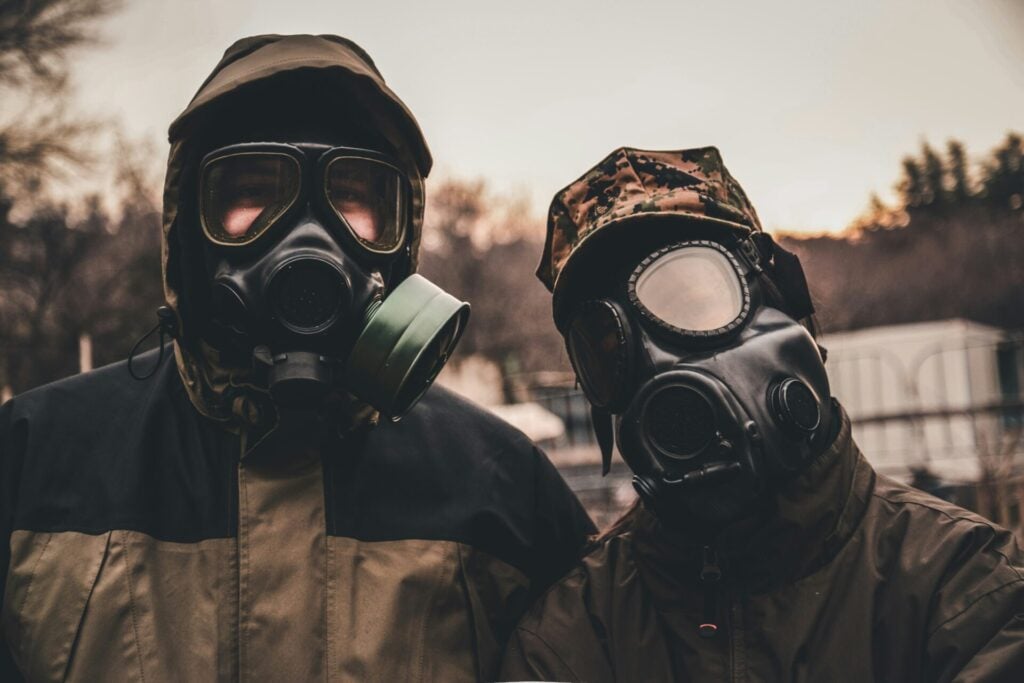
‘In a public imagination fuelled by reality TV,’ they write, ‘preppers are lonely survivalists, members of fanatical religious groups, or even wealthy Silicon Valley moguls.’
In reality, they say, preppers range from ‘New Yorkers with extra boxes of canned goods squeezed into their studio apartments to wilderness experts with fully stocked bunkers.’
Prepared For… What, Exactly?
It’s not so much a zombie apocalypse that preppers are getting ready for – what most are prepping for is something more mundane. And realistic.
‘We’re not equipped to assess what goes on in people’s heads, much less whether they sincerely or genuinely believe these things. We have no idea if preppers truly believe the end is near, are merely hedging their bets, or if it helps them cope with some underlying trauma.’
Robert Kirsch and Emily Ray, Political scientists
Among the Doomsday-mongers’ top concerns are:
Natural disasters – such as floods, fires, and hurricanes. At the extreme end of the spectrum are asteroid and meteor strikes, plus ‘mega quakes’ that wobble the whole planet.
Pandemics – in a word, Covid 2.0. Fool us once, but you won’t fool us again.
Political instability – what’s to say someone won’t seize power and force ‘your kind of people’ underground?
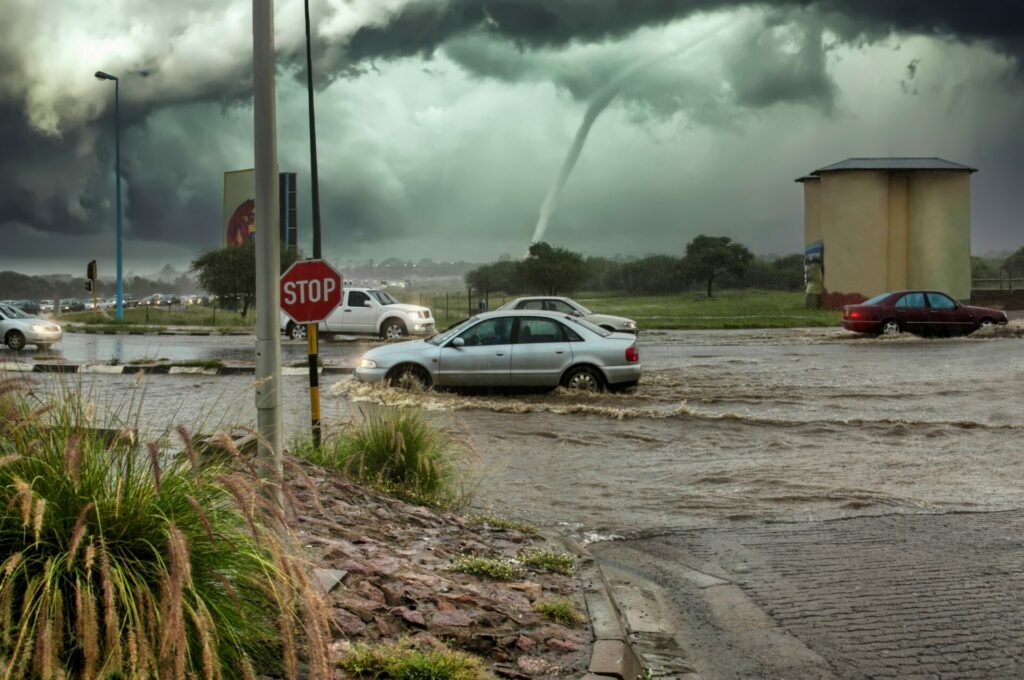
Technology – there’s a growing fear that critical tech infrastructure is vulnerable. In 2021, for example, the company that runs the Colonial oil pipeline in the US had to pay hackers more than $4m (AED 14.6m) to regain control of their computer systems. A loss of payment processing systems, the internet, or the power to your property could make that metric tonne of Pringles or stack of sardine cans in the basement seem like a masterstroke.
Anarchy – social uprisings are feared by many. OK, by some.
Food shortages – climate change, pests and new parasites could change the world’s larder as we know it
End-of-the-world-itis – the very idea of prepping and going off-grid is appealing to anyone who has lost faith in the social systems they once relied on.
Getting worried yet?
Chris Turpin, the CEO of the Be Prepared Expo (and no, it’s nothing to do with the Scouts) is stoic. ‘Preparedness helps you from eating your neighbour,’ he said.
The horror of being ‘I told you so’ by a neighbour whose 12,000 packets of air-dried beef now make your mouth water because all you held back for Armageddon was a Snickers. (For the vegetarians and vegans among us be prepared to go hungry.)
Presumably stockpiling those Costco buckets of pasta will prevent that. Or why not try one of Amazon’s ‘emergency food kits’ – a snip at £169.99 (AED 740, 209) for 60 servings of breakfasts, lunch and dinner – enough for a week’s food for one person. For a family buckets it’s £589.85 (AED 2,721). They’re currently flying off the (virtual) shelves in the UK, with 3,000 a month being snapped up by British preppers.
And they’re being metaphorically patted on the back for it. As columnist Eva Wiseman writes in The Guardian: ‘While hoarding is seen as pathological, prepping instead is understood as a kind of activism. The impulse to prep belong, I think, in the wellness sphere – stockpiling tins of spam is not so far removed from applying moisturisers or breathing deeply.
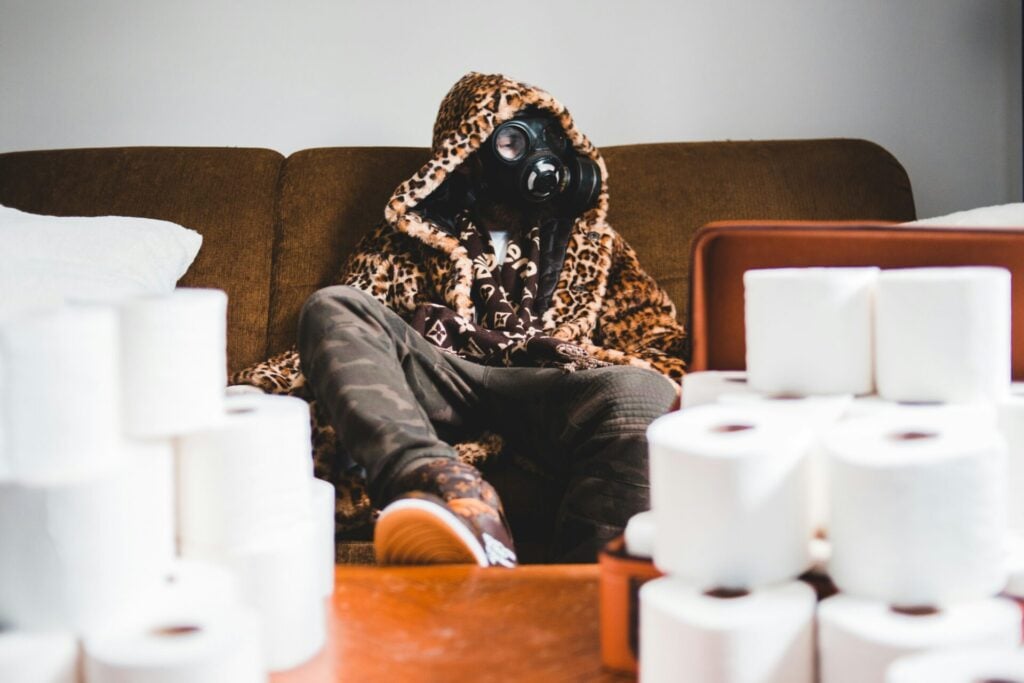
‘They both provide a sense of control amid the chaos. Because an emergency food kit is not just a supply of meals for when the power goes out. It’s also a bucket of dread, each catastrophe neatly stacked and packaged in a way that helps us appreciate the distinction maybe between what we really want and what we really need.’
Political scientists Robert Kirsch and Emily Ray are no nearer to the psychology behind the prepping phenomenon even though they’ve investigated it for their book Be Prepared: Doomsday Prepping in the United States (2024). ‘We’re not equipped to assess what goes on in people’s heads, much less whether they sincerely or genuinely believe these things,’ they admit. ‘We have no idea if preppers truly believe the end is near, are merely hedging their bets, or if it helps them cope with some underlying trauma.’
But what we do know is that the amount of preppers has doubled in the last eight years and will continue to do so.
Going all-in means you will miss out on other things. Such as getting on with and enjoying everyday life. Or visiting far-flung corners of the world, where you’ll be many miles from the ‘security blanket’ you’ve created in your garage
Are You Prepared?
When deciding if prepping is right for you, you should take a moment to weigh up two things:
- The horror of being ‘I told you so’ by a neighbour whose 12,000 packets of air-dried beef now make your mouth water because all you held back for Armageddon was a Snickers. (For the vegetarians and vegans among us be prepared to go hungry. Aside from cans of baked beans (nom nom) and green beans (euugh) there’s not much in the way of tinned food for us.
- The fact that prepping is a time-consuming pursuit.
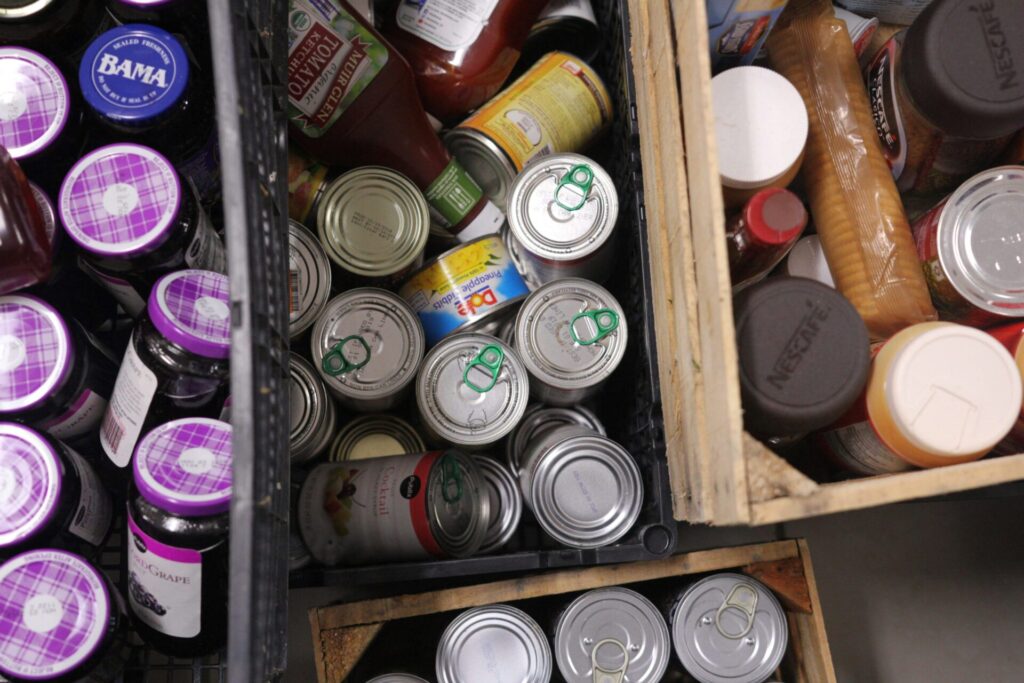
Going all-in means you will miss out on other things. Such as getting on with and enjoying everyday life. Or visiting far-flung corners of the world, where you’ll be many miles from the ‘security blanket’ you’ve created in your garage.
So, how about a compromise? If you have the space, why not borrow our forefathers’ ‘rainy day’ logic and stock up on a dozen bottles of water and enough food for a week.
That’s not crazy at all. In fact, it seems rather sensible.
Environmentalist’s Inspiration?
While it’s easy to dismiss prepping as the domain of those people you’d give a wide berth to in the street, here’s an alternative viewpoint: what if prepping really speaks to the environmentalist in you?
Perhaps it’s a golden opportunity to learn how to make your own clothes, to find new uses for items that were destined for the garbage dump, or to grow things in the garden that will fill an empty tummy instead of just attracting ‘oohs’ and ‘aahs’ from the begonia-loving couple next door.
Self-sufficiency removes you from fast fashion, fast food, excessive energy consumption, and waste.
Remember that households generate more than half of the world’s food waste, and around 30 per cent of the energy we consume is lost on things like lights left on in empty rooms and appliances on standby.
So, as weird as it sounds, prepping might just help you become the environmentalist you always dreamed of.
Embracing prepping – really finding ways to get a kick out of it and have fun – means you’re not just preparing for the worst, you might get to live your best life. And the planet benefits, too.
But who are we to influence you? You do you.
That said, if you do go down the prepping route, would you mind stocking up on an extra one of everything for us?
Just in case.

